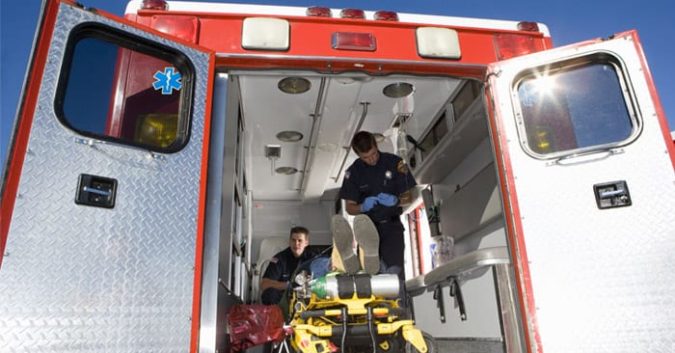Birth injuries are commonly linked to doctors’ negligence. In many cases, it took only 1, completely preventable mistake to cause a serious injury before, during, or after birth – causing conditions such as cerebral palsy, a neurological disorder. Just 1 of these avoidable errors can have permanent, life-changing effects.
However, while doctors and hospitals are largely responsible for causing parents and inflicted patients so much angst, it’s important to explore other possible causes. Emergency Medical Technicians (EMTs) and paramedics have often come under the spotlight for negligent medical care. But how might emergency care be a cause for concern?
The Reasons behind the Heartache
Any care personnel – whether a doctor, midwife, hospital administrative staff, physician, or EMT – has the potential to make mistakes. This is especially true in the high-stress, often challenging process of labor and delivery. Although healthcare providers are trained to be anything but a danger to patients, these mistakes can come at great cost. When mistakes directly involve an infant, this is when birth injuries can happen.
Medical errors that most often cause birth injuries include failure to:
- Accurately interpret fetal ultrasounds
- Promptly recognize and respond to signs of fetal distress
- Expedite delivery of the baby or perform a cesarean section (C-section) when needed
- Use delivery instruments safely
- Use Pitocin (a drug used to induce or facilitate labor) properly
- Resuscitate or care for the newborn after delivery
- Manage complicated pregnancy or delivery situations, such as abnormal bleeding
When these types of situations occur, the baby can be deprived of his or her basic needs at a very vulnerable time, such as oxygen to the brain or gentle handling. The resulting injuries can be severe and irreversible. Signs and symptoms of these birth injuries can develop anywhere from immediately to within a few years, leading to cerebral palsy, Erb’s palsy, other debilitating conditions, or even fatality.
Birth Injuries and Emergency Care
While many errors in the birthing process happen under midwives’ and doctors’ care, the lead up to hospital admission can also have a hand in serious outcomes. EMTs and paramedics are often called upon to get mothers and their upcoming arrivals safely to the hospital in emergency situations. Yet, it may be disconcerting to learn that such professionals can sometimes have little-to-no training in managing complications and severe emergencies when it comes to childbirth.
The actions of EMS providers, during the critical time between a 911 call to the emergency room, can mean the difference between life and death. Worse: EMTs only have basic training in even the most perilous medical situations, let alone pregnancy and birth. They do their best to meet their duty of care to each patient in an accurate, timely manner – but without the appropriate medical training in child delivery, their best may not be good enough.
Added to the myriad scenarios that can go wrong within the hospital, there are several instances of emergency care negligence that can result in a birth injury:
- Complications with anesthesia (administered for pain relief)
- Failure to recognize or respond to breathing difficulties
- Improper intubation or resuscitation measures
- Burns, which may occur from improper use of heated blankets or pads
- Delayed delivery caused by any of the above
So Doctors Aren’t Solely Culpable?
The law states that the term “medical malpractice,” covers the acts or omissions of all healthcare providers with a duty to protect and care for their patients. This includes doctors, of course, but EMTs do indeed play an important role in safe treatment.
That said, the laws pertaining to EMTs are a bit muddier. Most states enforce extensive protections for first responders against potential medical malpractice lawsuits that may otherwise be abundant in emergency services.
Nevertheless, this should not deter any parent from seeking legal advice. Anyone who has been wronged by medical error may have grounds to sue if the EMT or paramedic acted in an evidently – even intentional – reckless or dangerous manner. And if this is the case, during a time so pivotal to the future of the helpless victims involved, legal intervention is clearly a just response.
